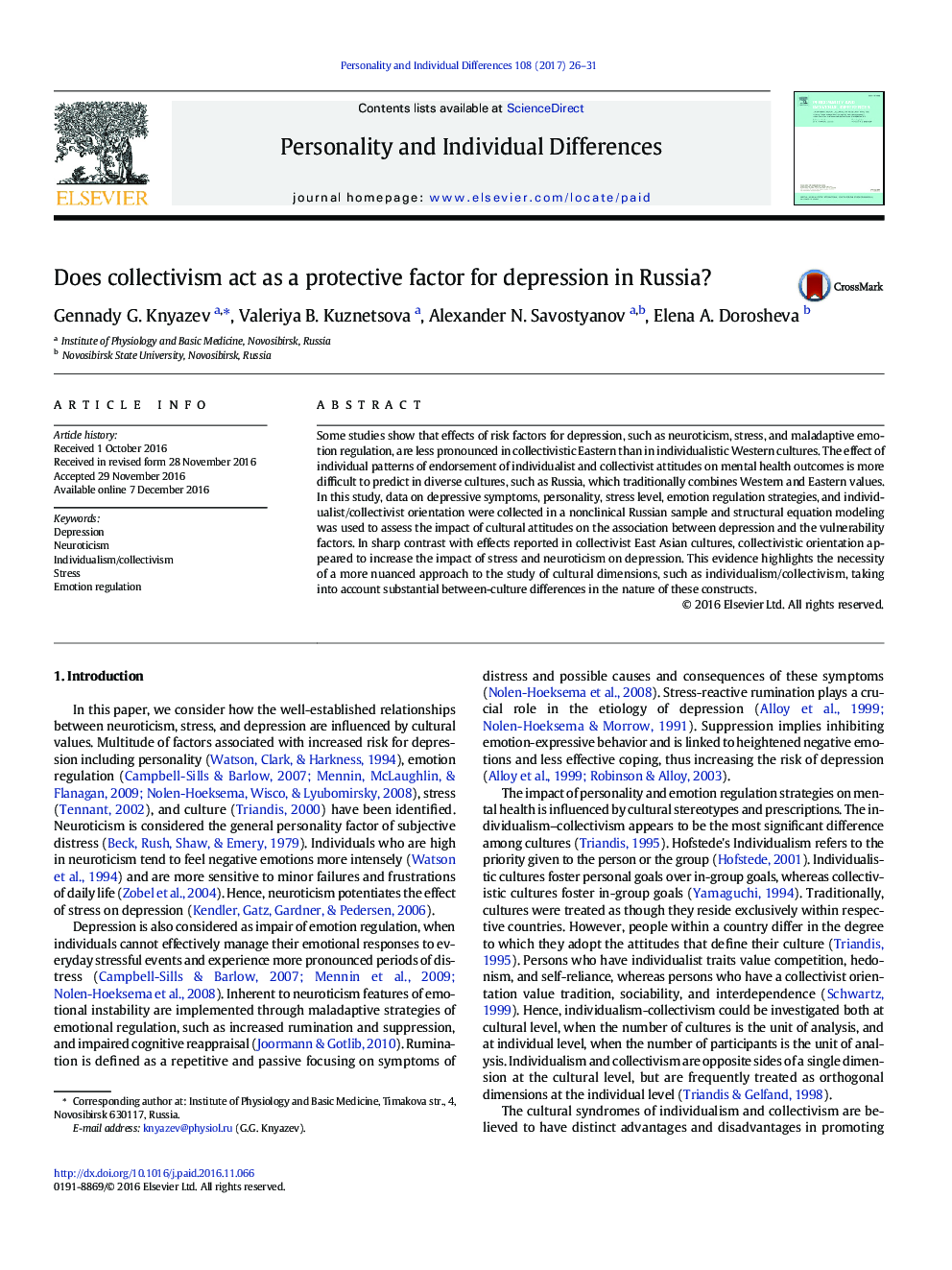| کد مقاله | کد نشریه | سال انتشار | مقاله انگلیسی | نسخه تمام متن |
|---|---|---|---|---|
| 5036087 | 1472010 | 2017 | 6 صفحه PDF | دانلود رایگان |
- Effects of risk factors for depression are less pronounced in collectivistic Eastern cultures.
- Russia combines Western and Eastern values.
- Collectivistic orientation increased impact of stress and neuroticism on depression in Russia.
- Between-culture differences in the nature of collectivism should be taken into account.
Some studies show that effects of risk factors for depression, such as neuroticism, stress, and maladaptive emotion regulation, are less pronounced in collectivistic Eastern than in individualistic Western cultures. The effect of individual patterns of endorsement of individualist and collectivist attitudes on mental health outcomes is more difficult to predict in diverse cultures, such as Russia, which traditionally combines Western and Eastern values. In this study, data on depressive symptoms, personality, stress level, emotion regulation strategies, and individualist/collectivist orientation were collected in a nonclinical Russian sample and structural equation modeling was used to assess the impact of cultural attitudes on the association between depression and the vulnerability factors. In sharp contrast with effects reported in collectivist East Asian cultures, collectivistic orientation appeared to increase the impact of stress and neuroticism on depression. This evidence highlights the necessity of a more nuanced approach to the study of cultural dimensions, such as individualism/collectivism, taking into account substantial between-culture differences in the nature of these constructs.
Journal: Personality and Individual Differences - Volume 108, 1 April 2017, Pages 26-31
